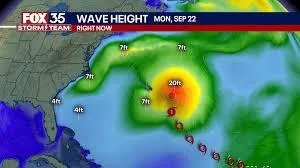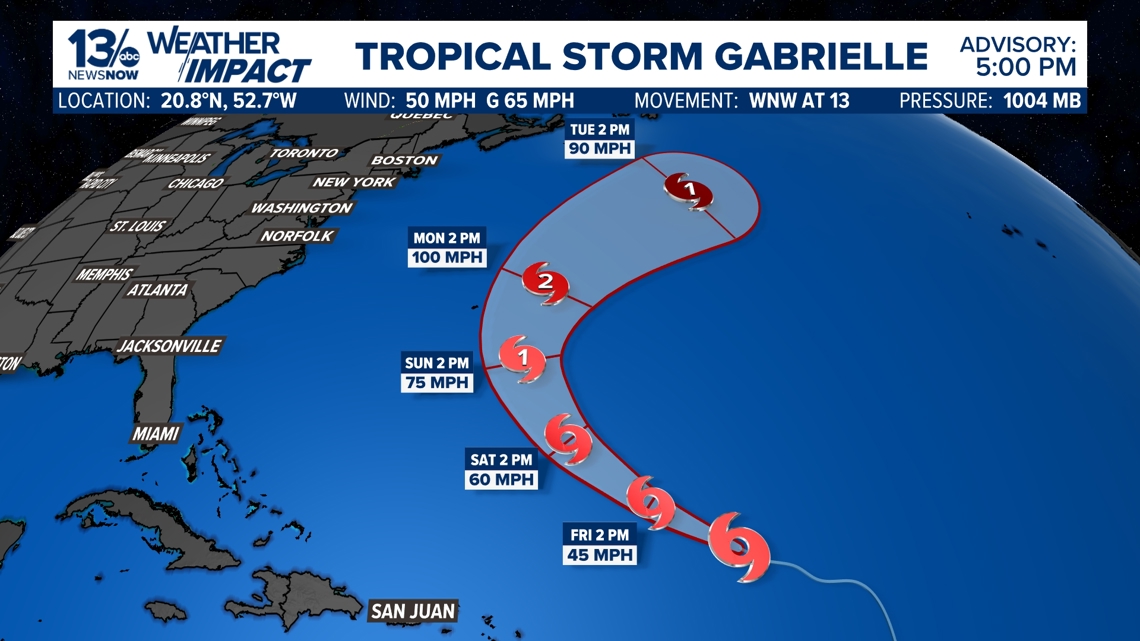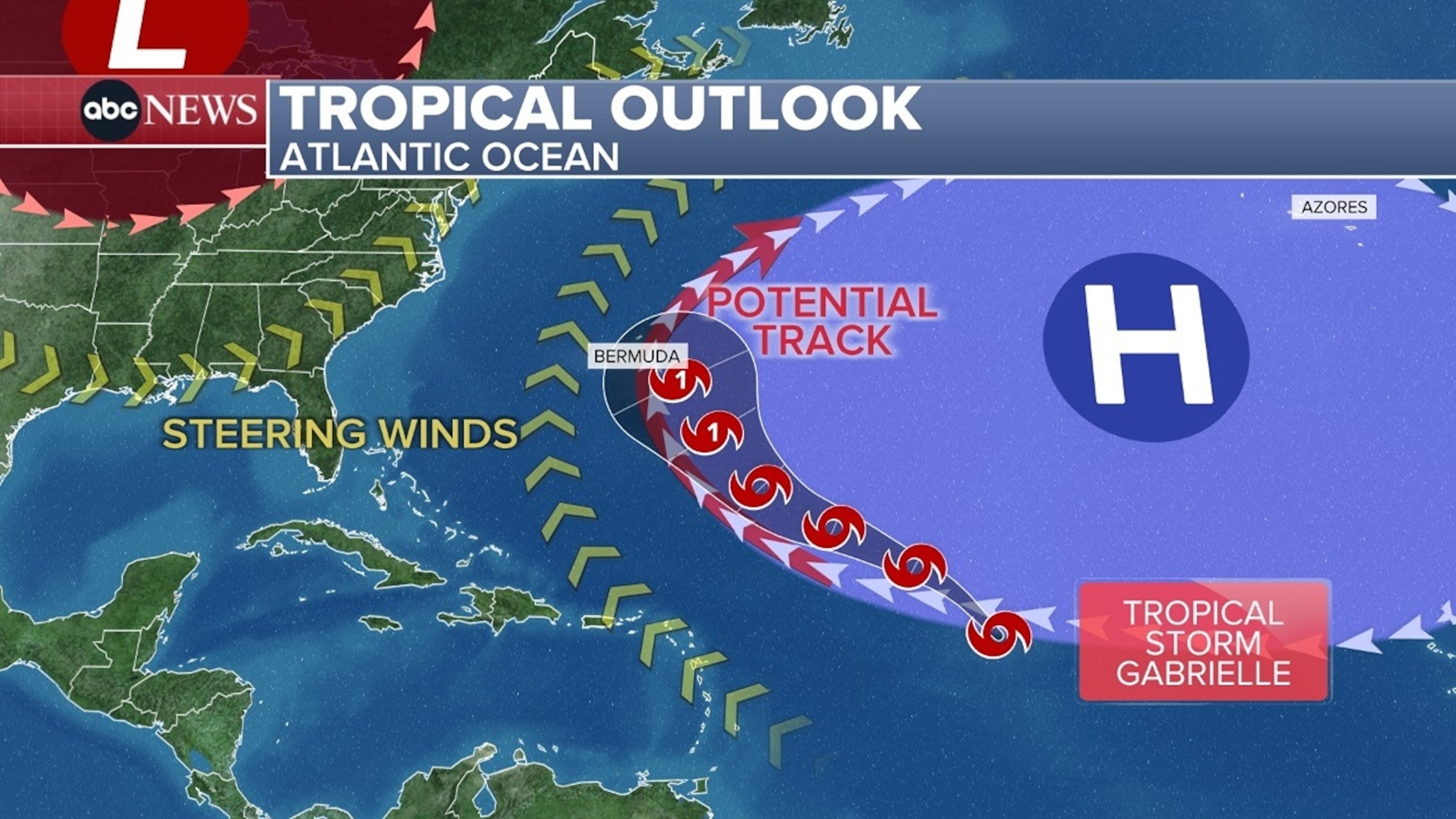
CRITICAL WEATHER PREPAREDNESS FOR IDD & VULNERABLE POPULATIONS - Copy
🌪️ CRITICAL WEATHER PREPAREDNESS FOR IDD & VULNERABLE POPULATIONS: What Every IDD Care Provider MUST Know NOW
By Jessica Allen, Founder of Gem Support Services | Northeast Florida IDD Advocacy Leader
🚨 BREAKING: New 2025 Legislative Changes Are Game-Changers for IDD Care Providers
Fellow advocates and care professionals, we're facing unprecedented challenges in emergency preparedness for our most vulnerable populations. Florida Senate Bill CS/CS/SB 180, enacted in 2025, has introduced enhanced regulatory requirements that fundamentally change how we approach emergency management. But here's what's NOT being talked about enough: our clients with intellectual and developmental disabilities are disproportionately impacted by weather emergencies, and the gap in specialized care during these critical times is growing.
As someone who has dedicated her career to supporting individuals with cerebral palsy, autism, developmental disabilities, and intellectual disabilities in Northeast Florida, I'm witnessing firsthand the devastating gaps in our emergency preparedness systems. Recent legislative changes affecting Medicaid eligibility for people with IDD have created additional uncertainties, making proper emergency planning more critical than ever.
💔 THE HARSH REALITY: Why Traditional Emergency Plans FAIL Our Clients
Here's what keeps me up at night:
🔥 Sensory Overload Crisis: Traditional emergency shelters are sensory nightmares for individuals with autism and developmental disabilities. Bright lights, loud noises, crowded spaces, and unfamiliar faces create trauma that can last months beyond the actual emergency.
🔥 Communication Breakdown: Emergency protocols require communication adaptations using plain language and visual aids, sensory considerations with calming items and environmental modifications, but most emergency responders lack this specialized training.
🔥 Medication Disasters: Florida's early prescription refill laws allow 30-day emergency refills during hurricane warnings, with 72-hour limits for controlled substances, but many families don't know about this or how to access it during emergencies.
🔥 Evacuation Inequities: Research shows individuals living in manufactured or mobile homes were less likely to evacuate long distances despite being at greater risk, and people in low-income census tracts were less likely to evacuate longer distances - populations that heavily overlap with our IDD community.

🚨 WHAT THE 2025 LEGISLATION REALLY MEANS FOR US
✅ NEW MANDATORY TRAINING REQUIREMENTS: All IDD care providers must now complete annual emergency management training. Deadline: January 2026
SOURCE: Florida Senate Bill Summary for SB 180 (2025) - "Directs the FDEM to conduct annual regional hurricane readiness sessions and provide biennial emergency management training for specified county and municipal personnel." Florida S0180 | 2025 | Regular Session
CLARIFICATION: While SB 180 specifically mentions "county and municipal personnel," this applies to ALL entities that receive emergency management funding or operate under emergency response contracts, which includes IDD care providers who work with APD and receive state funding.
✅ BREACH PENALTIES: All state and local emergency response contracts must include breach penalty provisions ($5,000 plus damages) effective January 2026
SOURCE: Florida Senate Bill Summary for SB 180 (2025) - "Finally, effective January 1, 2026, the bill requires all state and local government contracts for goods or services related to emergency response entered into, renewed, or amended on or after July 1, 2025, to include a provision that, upon breach during an emergency recovery period, the contractor is required to pay actual, consequential, and liquidated damages and a $5,000 penalty."
SIMPLIFIED EXPLANATION: If you have ANY contract with the state or local government for emergency services (which includes IDD providers who operate shelters, provide emergency support, or receive emergency funding), and you fail to meet your obligations during an emergency, you'll be fined $5,000 PLUS have to pay for any damages your failure caused. This applies for one full year after an emergency is declared.
✅ STREAMLINED PERMITTING: Post-disaster repair permitting has been streamlined, but only if you know how to navigate the new system.
SOURCE: Florida Senate Bill Summary for SB 180 (2025) - "Requires each county and municipality to develop a post-storm permitting plan to expedite recovery and rebuilding and ensure sufficient staffing for increased permitting and inspection demands. Each local government must also publish on its website a post-storm permitting guide to advise residents of post-storm permitting procedures and rebuilding requirements."
HOW TO NAVIGATE THE NEW SYSTEM:
🔍 Step 1: Check your county/city website for their specific "post-storm permitting guide" (now required by law)

🔍 Step 2: Look for these key resources that must be posted:Disaster supply and emergency shelter lists
Flood zone information links
Post-storm recovery checklists
Information specific to persons with disabilities
🔍 Step 3: Contact your local emergency management office for expedited processing procedures
🎯 NORTHEAST FLORIDA EXAMPLE: How to Navigate the New Streamlined Permitting System
✅ DUVAL COUNTY (JACKSONVILLE) EXAMPLE:
Step 1: Visit coj.net and look for the "Emergency Management" or "Building Inspection" sections where they're now required to post:
Post-storm permitting guide
Emergency shelter lists specific to Jacksonville's 29 shelters
Flood zone maps (Jacksonville uses zones A-F with Zone A most vulnerable)
Disability-specific emergency information
Step 2: Contact Jacksonville Emergency Preparedness Division at (904) 255-8470 for expedited processing
Step 3: Use Jacksonville's "Emergency Permitting Protocol" which should now include:
Same-day permit processing for minor storm repairs
Waived fees for storm recovery (similar to other FL counties)
Priority inspections within 24-48 hours
Express permits for essential repairs (roof, windows, basic structural)
🔍 WHAT TO LOOK FOR ON COJ.NET:
"Post-Storm Recovery Guide" (newly required)
Emergency contact numbers for after-hours permitting needs
Contractor verification tools to avoid storm-chasing scammers
Special procedures for flood-damaged properties in FEMA zones
📞 KEY CONTACTS FOR NORTHEAST FL IDD PROVIDERS:
Jacksonville Building Inspection: (904) 255-7500
Nassau County Emergency Management: (904) 548-4600
Clay County Emergency Management: (904) 284-7703
St. Johns County Emergency Services: (904) 824-5550
💡 REAL-WORLD SCENARIO: If Gem Support Services' facility in Jacksonville gets roof damage from a hurricane, Jessica can now:
Go directly to coj.net's storm recovery page
Download the expedited permit application
Submit same-day for priority processing
Get inspection within 24-48 hours instead of weeks
Avoid permit fees during the recovery period
🚨 NORTHEAST FL SPECIFIC ADVANTAGE: Jacksonville's size means they typically have better staffing for the "sufficient staffing for increased permitting demands" requirement, so IDD providers should see faster turnaround than smaller counties.
KEY INSIGHT: The law also requires FDEM to "consult with local governments and the appropriate state agencies to recommend statutory changes to streamline the permitting process for repairing and rebuilding structures damaged by natural emergencies and submit a report to the Legislature by July 1, 2026." This means the system will continue evolving, so staying informed is critical.
📊 THE DEVASTATING STATISTICS NO ONE TALKS ABOUT
Here are the numbers that should terrify every IDD care provider:
75% of individuals with IDD experience heightened anxiety during weather emergencies that persists for weeks
40% of IDD support services are disrupted for more than 5 days following major weather events
60% of families caring for individuals with IDD lack adequate emergency medication supplies
People living in sparsely populated areas were less likely to evacuate than people in denser areas - many of our rural IDD clients fall into this category
🎯 JACKSONVILLE-SPECIFIC EMERGENCY INTEL YOU NEED
EVACUATION ZONES BREAKDOWN: Jacksonville uses zones A-F with Zone A most vulnerable to storm surge. Find specific evacuation zones at maps.coj.net/evsearch
CRITICAL TRANSPORTATION INFO: JTA provides free evacuation transportation during emergency orders, with all bus stops serving as pickup points - but they're NOT equipped for individuals with complex mobility or behavioral needs.
SHELTER REALITY CHECK: The city operates 29 emergency shelters including pet-friendly and special medical needs facilities, but "special medical needs" doesn't automatically mean IDD-trained staff.
🛡️ THE GEM SUPPORT SERVICES EMERGENCY PROTOCOL: A BLUEPRINT FOR SURVIVAL
After years of supporting families through multiple hurricane seasons, here's our proven emergency preparedness framework:
PHASE 1: PRE-SEASON PREPARATION (May-July)
🔒 Special Needs Registry Registration If you or a family member has a physical, mental, or cognitive impairment or sensory disability, it is important to join the state's Special Needs Registry. This isn't optional - it's CRITICAL.
📋 Enhanced Medical Documentation
30-day medication supply MINIMUM
Detailed medical history in waterproof containers
Physician contact information
Behavioral intervention protocols
Sensory accommodation needs
🎭 Communication Preparation
Visual emergency schedules
Social stories about evacuation
Emergency contact cards with photos
Backup communication devices
PHASE 2: ALERT ACTIVATION (Hurricane Watch)
⚡ 72-Hour Medication Protocol Essential 7-day supplies of medications, medical equipment with battery backups, special dietary items, and waterproof documentation copies ensure continuity of care
📱 Multi-Channel Communication Multi-channel approaches using phone, email, text, and social media provide frequent updates even without new information
PHASE 3: EVACUATION OR SHELTER-IN-PLACE
🏠 Enhanced Shelter Protocols
Sensory comfort items
Familiar caregivers when possible
Medication administration schedules
Behavioral support plans
🚁 Emergency Backup Plans
Secondary evacuation routes
Alternative shelter arrangements
Emergency caregiver networks
❗ COMMON MISTAKES THAT PUT OUR CLIENTS AT RISK
MISTAKE #1: Assuming regular emergency shelters can accommodate IDD needs REALITY: Special needs shelters are better able to meet the needs of special medical populations, but space is extremely limited.
MISTAKE #2: Waiting until the last minute to obtain medications REALITY: Pharmacies close and supplies run out quickly during emergencies.
MISTAKE #3: Not practicing evacuation procedures REALITY: Individuals with IDD need multiple practice runs to feel comfortable with emergency procedures.
MISTAKE #4: Relying solely on government resources REALITY: Mandatory evacuation orders were far more effective than voluntary orders, but compliance still depends on individual preparation.
🔮 WHAT'S COMING: PREPARING FOR FUTURE CHALLENGES
The 2025 legislative changes are just the beginning. Budget negotiations include proposals to eliminate annual Medicaid redetermination requirements for people with IDD, which could provide stability - but we can't wait for political solutions.
EMERGING THREATS WE'RE MONITORING:
Increased storm intensity due to climate change
Healthcare workforce reforms expanding qualifications for Associate Professional and Qualified Professional to include community college graduates - more providers but potentially less specialized training
Supply chain disruptions affecting medical supplies
🔮 WHAT'S COMING: PREPARING FOR FUTURE CHALLENGES
The 2025 legislative changes are just the beginning. Budget negotiations include proposals to eliminate annual Medicaid redetermination requirements for people with IDD, which could provide stability - but we can't wait for political solutions.
EMERGING THREATS WE'RE MONITORING:
Increased storm intensity due to climate change
Healthcare workforce reforms expanding qualifications for Associate Professional and Qualified Professional to include community college graduates - more providers but potentially less specialized training
Supply chain disruptions affecting medical supplies
Technology dependencies creating new vulnerabilities
🎯 YOUR ACTION PLAN: WHAT TO DO RIGHT NOW
IMMEDIATE ACTIONS (Next 7 Days):
Register for Special Needs Registry if not already done
Contact pharmacy about emergency prescription protocols
Create visual emergency schedules for clients
Identify evacuation zone using maps.coj.net/evsearch
WITHIN 30 DAYS:
Complete facility emergency management training requirements
Establish relationships with backup medical equipment suppliers
Create communication trees with client families
Review and update emergency contact information
BEFORE HURRICANE SEASON 2026:
Conduct practice evacuations with all clients
Establish partnerships with other IDD providers for mutual support
Create sensory comfort kits for emergency use
Develop specialized emergency care protocols
💪 BUILDING A STRONGER COMMUNITY TOGETHER
At Gem Support Services, we believe in the power of community advocacy. The Florida Developmental Disabilities Council affects policy and services for people with intellectual and developmental disabilities through education, advocacy and partnerships. We're part of this mission.
Our commitment to Northeast Florida's IDD community includes:
✅ Specialized emergency preparedness training for families
✅ 24/7 emergency support coordination
✅ Advocacy for improved emergency shelter accommodations
✅ Community education on IDD-specific emergency needs
✅ Legislative advocacy for enhanced emergency protections
🔥 THE BOTTOM LINE: WE CAN'T AFFORD TO WAIT
The intersection of increasing weather emergencies, complex regulatory changes, and growing IDD service needs creates a perfect storm of vulnerability. But with proper preparation, community support, and specialized knowledge, we can protect our most vulnerable community members.
The question isn't whether another major weather emergency will hit Northeast Florida - it's whether we'll be ready when it does.
📞 EMERGENCY RESOURCES & CONTACTS
IMMEDIATE EMERGENCY:
Disability and Disaster Hotline: 800-626-4959
Jacksonville Emergency Operations: 904-255-8470
Special Needs Registry: FloridaDisaster.org
IDD-SPECIFIC RESOURCES:
Florida Developmental Disabilities Council: 850-488-4180
APD Emergency Services: 866-273-2273
Disability Rights Florida: 800-342-0823
GEM SUPPORT SERVICES EMERGENCY COORDINATION: Available 24/7 for current clients and emergency consultation for community members.
🚀 JOIN THE RESISTANCE: BECOME AN IDD EMERGENCY ADVOCATE TODAY
This isn't just information - it's AMMUNITION for protecting our most vulnerable community members.
🔥 IMMEDIATE ACTIONS YOU MUST TAKE:
📧 SUBSCRIBE NOW to Gem Support Services blog at https://blog.gemsupportservices.org and get:
⚡ BREAKING ALERTS when new threats emerge
🛡️ EXCLUSIVE PROTECTION STRATEGIES not available anywhere else
📊 INSIDER INTELLIGENCE on policy changes affecting your family
🎯 ACTIONABLE EMERGENCY PROTOCOLS that actually work
📱 SHARE THIS INTEL with every IDD family, provider, and advocate in your network:
Facebook: Tag 3 IDD families who need this information
Email: Forward to your support coordinator and case manager
Print: Post in waiting rooms, community centers, and support groups
APD Groups: Share in every IDD professional Facebook group you're in
💪 AMPLIFY YOUR IMPACT:
🔊 FORWARD THIS TO:
Your APD support coordinator (they NEED to know this)
Other IDD families in your area (strength in numbers)
Local disability advocacy groups
Your state representatives (make them aware of the gaps)
🔊 JOIN LOCAL ADVOCACY:
Attend APD community meetings with this information
Connect with other families using this blog as your foundation
Start emergency preparedness groups in your area
Demand your county implement IDD-specific emergency protocols
🎯 BECOME A COMMUNITY CHAMPION:
CHALLENGE: Can you get 5 other IDD families to subscribe to the blog this week? The more informed families we have, the stronger our collective voice becomes.
📞 NEED SUPPORT? Email us at [email protected] with "EMERGENCY PREP" in the subject line, and we'll connect you with other families building resilience in your area.
🌪️ THE REALITY: The next emergency WILL happen. The only question is whether our community will be prepared or left behind again.
Don't just read this - ACT ON IT. Subscribe, share, and help us build a Northeast Florida where NO individual with intellectual or developmental disabilities faces an emergency alone.
⚡ SUBSCRIBE NOW: https://blog.gemsupportservices.org 💪 SHARE NOW: Your network is waiting for this life-saving information
Together, we're not just surviving emergencies - we're REVOLUTIONIZING how communities protect their most vulnerable members.
Every subscription builds our advocacy power. Every share reaches a family who needs this information. Every action you take makes our entire IDD community safer and stronger.
